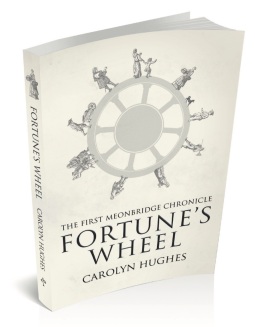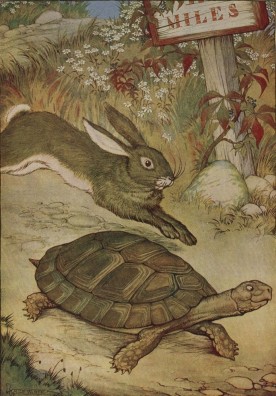I have received some splendid reviews of Fortune’s Wheel and A Woman’s Lot, and of course I’m always thrilled when people say complimentary things about my writing. This is particularly the case when they mention how authentic the world of Meonbridge seemed, or how invested they felt in the characters.
- “It’s a great tribute to Carolyn’s wonderful writing and her ability to recreate the era and its people that I slipped back in time quite effortlessly.” @Williams13Anne
- “I didn’t so much feel as if I were reading about mediaeval England as actually experiencing it first hand”…..“[Carolyn’s] ability to create a realistic and still totally accessible world is outstanding”… @Lindahill50Hill
- “Another fantastic piece of completely immersive historical fiction from Carolyn Hughes…” @thebookmagnet
 Naturally I’m not so thrilled when somebody leaves a 3*, or even 2*, review. All but one of the “bad” reviews (as I am referring to them here, as shorthand) I’ve received have been for Fortune’s Wheel, that’s seven 3* and one 2*, out of a total of 43 reviews on Amazon and Goodreads combined, so perhaps I shouldn’t feel too badly.
Naturally I’m not so thrilled when somebody leaves a 3*, or even 2*, review. All but one of the “bad” reviews (as I am referring to them here, as shorthand) I’ve received have been for Fortune’s Wheel, that’s seven 3* and one 2*, out of a total of 43 reviews on Amazon and Goodreads combined, so perhaps I shouldn’t feel too badly.
(By the way, some 3* reviews should not really be considered “bad” at all, but rather just an indication of the reader’s estimation of the book in relation to all the others he/she has read: a good book, perhaps, but not a great one. Which is fair enough. I think we writers perhaps have a tendency to feel that if we don’t receive all 4* and 5* reviews, there’s something wrong with the book. I really do believe that is not the case!)
However, the point I want to make in this post is that even “bad” reviews can often be very helpful to a writer. With a few exceptions, we should embrace them, because you can always learn from your critics!
As it happens, only one of those reviews, the 2* one, is almost entirely negative. All the 3* ones found something positive to say, even if Fortune’s Wheel wasn’t entirely their cup of tea. And not liking my books is of course absolutely fine – they can’t possibly appeal to everyone. But it is great when a reader, despite not being particularly thrilled with their read, says something that helps me to understand why the novel wasn’t right for them, or how I might perhaps tweak my writing to appeal a little more to them. And it is embracing this kind of feedback that I want to consider.
I have noted three main areas of “dislike” of Fortune’s Wheel in the comments of these “bad” reviewers: the slow pace of the story, the story being different from expected, and the large cast of characters.
Slow pace
The principal reason for the “bad” reviewers not so much liking Fortune’s Wheel is what they considered a slow plot line and/or a lack of action.
One reviewer said: “I found it hard to read at my usual pace and the story seemed to take a while to get moving”, so she didn’t enjoy it as much as she thought she might. Another was disappointed because she was looking forward to reading the book but then found it “really slow and verbose…it dragged…”. Another said something similar: “the writing felt long-winded and over-explained”.
So “slowness” comes in two guises: lack of pace and action, and long-windedness.
 One reviewer admitted that he liked “books with action”, and it’s quite true that Fortune’s Wheel is not exactly action-packed. It was of course never intended to be: it was essentially a character-driven story about how people responded to disaster rather than a plot-driven thriller. It’s not true that nothing happens, but it’s perhaps not the sort of book where readers are rapidly turning the pages as the plot rushes ahead. Indeed, as one of the “good” reviewers said: “the novel doesn’t race along at breakneck speed” but “at a pace that is both comfortable and kept me interested and engaged throughout.” Another says “the pace is not rapid-fire but steady and strong”. But another reviewer thought it had a “gripping, female driven plot, with enough historical accuracy to have me thinking ‘Well I never knew that’”, so not everyone finds “slow” also unexciting.
One reviewer admitted that he liked “books with action”, and it’s quite true that Fortune’s Wheel is not exactly action-packed. It was of course never intended to be: it was essentially a character-driven story about how people responded to disaster rather than a plot-driven thriller. It’s not true that nothing happens, but it’s perhaps not the sort of book where readers are rapidly turning the pages as the plot rushes ahead. Indeed, as one of the “good” reviewers said: “the novel doesn’t race along at breakneck speed” but “at a pace that is both comfortable and kept me interested and engaged throughout.” Another says “the pace is not rapid-fire but steady and strong”. But another reviewer thought it had a “gripping, female driven plot, with enough historical accuracy to have me thinking ‘Well I never knew that’”, so not everyone finds “slow” also unexciting.
A Woman’s Lot is much the same: “a fascinating meander through…Meonbridge noticing everything that goes on as you pass by rather than a canter at breakneck speed in pursuit of answers to the mystery.” And I really like this comment: “the book can be a little slow paced, but it fits very well with the rhythm of life in the town so it feels intentional rather than a lack of pacing.” Indeed!
So what should I do for those readers who find the pace too slow? Speed up the pacing? Make the books more plot-driven and action-packed? Well, no to both. I’m writing a series, so I can hardly radically change the writing style.
But I’m not ignoring those reviewers either.
When I wrote A Woman’s Lot, I did, though only partly as a result of those reviews, include a little more “action”, and more events. Also, my editor had commented that I should not describe unpleasant events, which I had done to some extent in Fortune’s Wheel, but show them. Indeed, one of the “bad” reviewers had said something about this in relation to Fortune’s Wheel: “Murders occur, but they are only mentioned….”. And perhaps he was right – I had shied away from making the character most affected by a gruesome event actually show us what she saw. I’ve come to realise that distancing the protagonist, and therefore the reader, from important events is not a good idea, because it diminishes the reader’s engagement with both that protagonist and the story. I needed to bring those events more to the fore by letting the character show them in her voice, rather than simply having them described remotely. And that is what I have done. So, despite A Woman’s Lot still being, apparently, fairly “slow-paced”, perhaps it does have a little more vitality.
As for future books, well I think that book 3 has even a little bit of a “thriller” feel to it, simply because the storyline demands a good deal of action and, indeed, violence, although the book does still follow the lives of Meonbridge folk already introduced in the first two books.
But what of the long-windedness mentioned by a couple of reviewers? This is a rather different matter, because it might indicate that my writing is indeed too verbose for its own good. Of course some readers might see “verbosity” as “richness”, but I am willing to accept any criticism of over-writing as a signal that I do need to ensure that my prose isn’t too purple, and that I don’t “tell” as well as “show”, which is essentially what that reviewer meant by “over-explained” and is a common fault, I think, among many novice writers. So, few as those comments are, I take heed and, as part of my editing process, keep a watchful lookout for instances of over-writing.
A confusing book blurb
The second “dislike”, alluded to in just a few reviews, is a sense that Fortune’s Wheel wasn’t quite what it purported to be. Two or three readers thought it would be more of a mystery than it actually was. A central mystery thread does run throughout the novel and is only resolved at the end, but there are other story threads that weave in and out of, and interact with, the main one. The readers who were expecting a mystery, with, presumably, a single storyline that plotted the resolution of the mystery, were disappointed. Initially, their comments made me wonder why they had misunderstood the nature of the story: “it’s meant to be a historical crime novel…but actually it works much better as a novel showing how the village recovers slowly from the disaster.” Indeed! “I thought this book would be a mystery centred around the search for Agnes and the reason for her disappearance….I thought it a bit odd that the blurb makes it seem as if there’s only one [main character]”.
So I looked at the blurb – the piece that is printed on the back cover of the paperback, and is included in the book description in online bookstores. And this was definitely a lesson that I needed to learn, for the blurb could indeed be misinterpreted:
Plague-widow Alice atte Wode is desperate to find her missing daughter, but her neighbours are rebelling against their masters and their mutiny is hindering the search…
…Although she understands their demands, Alice is disheartened that the search for Agnes is once more put on hold. When one of the rebels is killed, and then the lord’s son is found murdered, it seems the two deaths may be connected, both to each other and to Agnes’s disappearance.
That first sentence does suggest that the search for Alice’s missing daughter is the central storyline, when in fact it isn’t. I hadn’t realised how easily this might give the wrong impression of the nature of the story!
I haven’t done so yet but, when I get the opportunity, I will change the blurb to something that is a clearer reflection of the story. And I was really very grateful to those reviewers for showing me how very careful you do need to be when writing a description for your book!
“Too many” characters
 It sometimes surprises me when people say they are daunted by the long list of characters at the beginning of my books, yet I do recognise the problem, especially if many of the characters have similar names – and, it turns out, similar personalities, so it’s really hard to distinguish between them. Hopefully, that isn’t a problem in my books. Nonetheless, it is a bit of a challenge to have to keep track of a couple of dozen people, rather than just a few. Some of the “good” reviewers also mentioned the “daunting” list, but several went on to comment that, actually, they didn’t find it all that difficult to keep track of the characters after all, which presumably means that their personalities were sufficiently differentiated – hooray!
It sometimes surprises me when people say they are daunted by the long list of characters at the beginning of my books, yet I do recognise the problem, especially if many of the characters have similar names – and, it turns out, similar personalities, so it’s really hard to distinguish between them. Hopefully, that isn’t a problem in my books. Nonetheless, it is a bit of a challenge to have to keep track of a couple of dozen people, rather than just a few. Some of the “good” reviewers also mentioned the “daunting” list, but several went on to comment that, actually, they didn’t find it all that difficult to keep track of the characters after all, which presumably means that their personalities were sufficiently differentiated – hooray!
However, one reviewer did say that she felt “less invested in the individual stories of each of the people”, so, for her, it remained a problem. And it was not just that there were a lot of characters overall, but that there was more than one protagonist. Many books on novel writing do say that you “should” have a single protagonist for readers to identify with or root for (or indeed loathe). But I’ve never believed that this is really necessary, provided, I suppose, that all the characters are sufficiently well-drawn to enable readers to relate to them as people. And it’s my job, as author, to ensure that every character is an individual. So working hard on characterisation is important.
In Fortune’s Wheel, there were three protagonists (main voices), in A Woman’s Lot there were four. In the third Chronicle, there are actually five, and in book 4 I think there will again be four. Is that too many? Well, for most readers so far three/four does seem to work, and I personally like the principle of having several main characters and weaving their stories together.
I have mentioned this on more than one occasion before, but one of the early reviewers of Fortune’s Wheel compared my novel to the much-loved British radio soap opera, The Archers. The programme’s tagline used to be “an everyday story of country folk”, which I echo in one of my own taglines, “Everyday life in the 14th century”. Of course one aspect of soap operas is the plethora of characters, between whom the various story threads alternate. I wrote about this business of handling several protagonists and a large cast of characters in a blog last year (https://carolynhughesauthor.com/2017/11/08/everyday-stories-of-country-folk-a-reprise/), so I won’t repeat that discussion here, but you may find it interesting.
I think it’s true that most of the reviewers who initially thought “OMG, so many characters!” were, in the end, drawn in by them and found themselves invested in what happened to them. Even those who felt the story was too slow nonetheless enjoyed the insights the book seemed to give them into the lives of medieval people, and felt that the characterisation had sufficient depth to make those people come alive. The fact that several reviewers said how much they were looking forward to the next book must bear this out – they want to know how the characters’ stories develop. Only one or two reviewers were not really convinced but, again, that’s fine. Perhaps they simply don’t like books that have lots of characters! An everyday story of lots of country folk cannot appeal to every reader.
So what conclusions do I draw from this little analysis of my “bad” reviews? Firstly, that I’m fortunate that, so far, I haven’t really received any truly bad reviews: no one has said my books are rubbish. Though they still might of course…
I have mentioned where I have drawn lessons from the comments I’ve received. By making sure I don’t distance the protagonist, and therefore the reader, from whatever action there is; being careful about over-writing; ensuring that the blurb is a good reflection of the story; and working hard to ensure that every character is an individual, I hope that future books may overcome those issues that my less-than-happy readers found.
So do I say, “bring on those bad reviews”? Well, no. I don’t want people not to enjoy reading my books! I want them to love them and I will strive to make them as good as I possibly can. But I respect those readers who don’t love them and I still want to hear in what way the books didn’t appeal to them. Knowing that, I won’t necessarily change the way I write, but it’s all part of how I learn and grow as a writer.

I love this post! It is very helpful, I always think of a 3-star review as a “B” and not negative.
LikeLiked by 1 person
Thank you! And that’s a good way of thinking of it – a “B”… Authors can be such fragile, self-critical creatures that anything less than an “A*” is considered a failure. How much better to think of it as an opportunity!
LikeLiked by 2 people
When I’m rating a book, I reckon 3* as “average”, making 4* “better than average” and 5* “I’ll remember this for the rest of my life”. Books I dislike get a 2* or occasionally 1* rating, and I try to give a reason in most cases, but most of the time it’s simply that the book was “not for me”. Not badly written, in most cases (there are some exceptions) but simply not to my taste. And where would we be without differing tastes? If we all liked the same thing, there would only ever need to be one, perfect book, and not being a religious person I don’t think that book exists.
So my own reviews and ratings are not meant to praise or offend authors, but to let my fellow readers know that if they like the same books as I do, they might like or dislike the book I have just read.
LikeLiked by 1 person
Thank you so much, Jane, that’s a really helpful comment, and also expresses the way I feel that review ratings “should” be regarded. I just sometimes sense that if their book doesn’t receive a slew of 4* and 5* reviews, some authors think they’ve failed. Which is of course silly. I’m as guilty as any author of tending to shout about my higher rated reviews, so in this blog I just wanted to acknowledge too the often unsung value of lower rated ones.
LikeLike
Reviews should never be ‘personal’ but a guideline for potential readers. If a book is full of typos or formatting errors, yes, those should be mentioned and maybe a star knocked off, but they should not dictate the overall ‘marking’. If there are holes in the plot or the writing is poor, that should be mentioned too, but suggestions as to why things don’t work should be added. I always try to add something positive or encouraging to my reviews; after all, an author will have spent months on their work and in some cases, it may well be the fault of the publishers/editor that the finished product is not as good as it could be.The stumbling block for Indie authors is that sometimes the publishers are happy to take their money but don’t give them the attention they deserve. So: if a review is poor but the points made are valid, then learn from them. If the remarks are along the lines of ‘I didn’t like it’ or ‘not my period of history’ and a 1 or 2 star follows, then ignore them – it wasn’t a review it was stating a personal point of view and of no real value
LikeLiked by 1 person
Thank you for that, Richard, and you are absolutely right in what you say!
LikeLiked by 1 person
There is a story of George Bernard Shaw – though I have no idea if it is true ….after a first night, the audience rose and applauded and called for the author. As GBS took the stage, one solitary voice called out, ‘Rubbish! It was rubbish’ ‘My dear sir,’ replied GBS, ‘I do so agree. But who are we two against so many?’ ….
LikeLiked by 2 people
It’s very useful to me as a reviewer to hear an author’s perspective on this. I review everything I read on goodreads, but only tend to put the 4 and 5 star ones on Amazon. This is because I think GR is for readers, and the main purpose of a review is to help others decide whether they might want to read the book, whereas Amazon is there for authors to sell books, and reviews there are more like extended advertising.
I do feel bad if I think an author is going to read a bad review, but figure you need thick skin to succeed in publishing, and always try to be constructive and explain what I didn’t like. I wish there were half stars, as many books that I enjoyed but that didn’t really stand out, would score 3.5, so I tend to say that and give a reason for rounding up or down. This could be that it made me laugh (up) or that it’s written in the present tense (down).
I rarely give 5 stars, I have to really love it, or find something unique and memorable about a book to do so, or just be totally gripped, but to me 4 stars is a very good rating.
LikeLiked by 1 person
Thank you so much for your thoughts, Joanna!
LikeLike